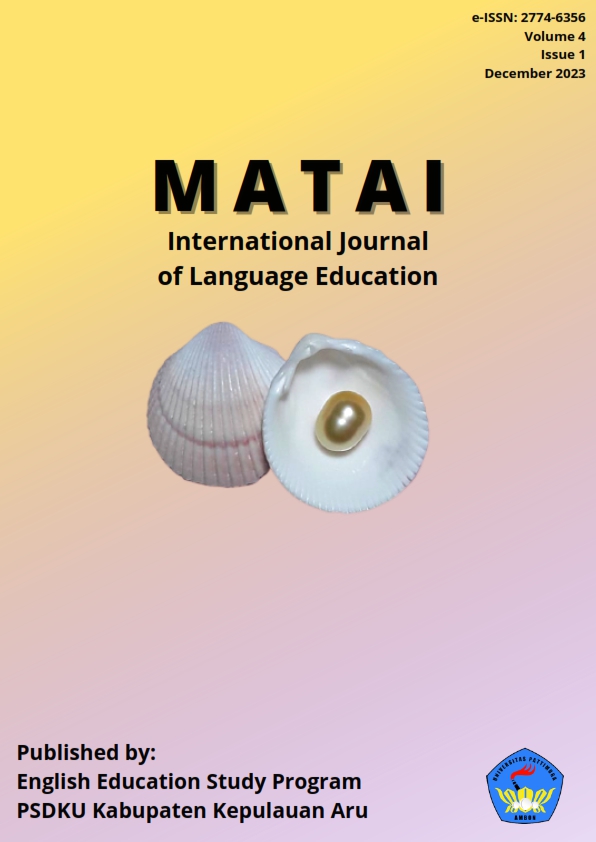An Analysis of Figurative Language in the Selected Poems of Jalaluddin Rumi
Abstract
Jalāl al-Dīn Muḥammad Rūmī, popularly known as Rumi, is considered one of the greatest poets in the Muslim world. In this study, the research will focus on the figurative language and its meanings. The subject of the study were 10 selected poems by Jalaluddin Rumi translated into English, they were: “The Guest House”, “A Moment of Happiness”, “Love is Reckless”, “If You are Seeking, Seek Us with Joy”, “Unfold Your Own Myth”, “A Great Wagon”, “Only Breath”, “When I Run After What I Think I Want”, “I am only the house of your beloved”, and “In the Waters of Purity”. The researcher conducts this research using a content analysis method with a qualitative approach. The techniques for doing research are as follows: First, the researcher selected randomly ten poems of Jalaluddin Rumi. Then, the poems were read line by line to find the figurative language, and then identify and categorize them. In analyzing the data, the researcher sorted the data into several types of figurative language and study the contextual meaning. After analyzing Jalaluddin Rumi’s poems, the researcher found a total figurative language of 45 from 10 selected poems by Jalaluddin Rumi. The researcher found 3 statements of metaphor, 7 statements of simile, 17 statements of personification, 10 statements of symbol, and 8 statements of allusion. Therefore, the researcher reaches the conclusion that the most dominant figurative language in Jalaluddin Rumi’s 10 selected poems is personification with a total of 17 statements.
Keywords
Jalaluddin Rumi; Poem; Poetry; Figurative language; Literature; Muslim
Downloads
Copyright (c) 2023 Raisa Andini Adiwangsa

This work is licensed under a Creative Commons Attribution 4.0 International License.
Authors who decide to share their articles with this journal must agree with these requisites:
|
1. The author, as the copyright owner, gives Matai the right to publish their work 2. Authors can share their articles, but they have to use Matai's published version by acknowledging Matai as the source. 3. Authors are encouraged to share their work online in order to let people know about their articles which can lead to more citations of the published work. |



